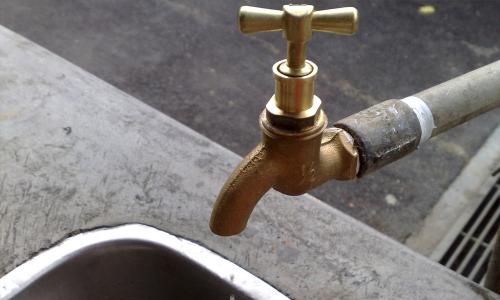Addressing policy directives on water management
LETTER | The Ministry-Stakeholders’ Dialogue in conjunction with the World Water Day on Mar 19, 2019 in Kuala Lumpur organised by the Malaysian Water Association has been a tremendous success for the wellbeing of Malaysia.
The policy directives for the proposed 12th Malaysia Plan (2022-2012) specifically for water resources management were acknowledged by Water, Land and Natural Resources Minister Dr Xavier Jayakumar, as well as leaders from government, non-government, business and private sectors who were present at the dialogue session.
The minister has been highly praised for his vision of water resources management and broad mentality to accept positive criticism. A total of 13 individuals placed their questions and suggestions to the table of minister for the future water policy directives.
The issues of climate change in relation to water resources management was addressed by the minister at the dialogue, referring the current water rationing to 30,000 populations in Kedah, because there is no raw water to treat by the two water treatment plants (WTPs).
The minister also informed that there is a higher possibility that the current heatwave may be prolonged till the middle of May this year and would trigger water crisis in parts of the country, especially in Kedah, Penang and Johor.
Therefore, the Water, Land and Natural Resources Ministry has taken the initiative to find alternatives to the six percent surface water in terms of using groundwater and maximising the collection of rainwater harvesting.
Meanwhile, the ministry with the support from experts from Japan has already identified potential groundwater sources in the country using the latest digital visualisation techniques. The minister also asked national experts to come forward on the usage of atmospheric water to take leadership roles in solving the problem.
At present, the 33 percent non-revenue water (NRW) rate in Malaysia is a serious problem, and Malaysia aspire to achieve the single digit NRW rate, like Japan's six percent rate.
However, it a big challenge to reduce the NRW to 31 percent by 2020 mainly because of the higher expenses and time constraints. The ministry informed that it requires about RM1 billion to reduce NRW by one percent, with the yearly NRW reduction rate in Malaysia being around 0.2 percent.
Hence, it is very optimistic that Malaysia will be able to sharply reduce its NRW rate, when countries like France, Denmark took a couple of decades to achieve a one percent reduction.
Although the present water and sewerage coverages are 98 percent and 78 percent respectively in Malaysia, however, the real challenge remains with funding, innovation and leadership roles, especially for the upgrade of water and wastewater treatment plants.
Sewerage pollution is considered as one the major water pollution sources in Malaysia, and this 78 percent (i.e. around 7,000 plants under Indah Water) sewerage coverage does not take into account personal septic tanks.
Moreover, effluents from the industries should also be under firm monitoring for acceptable water quality. For instance, the present chemical dumping at Sungai Kim Kim in Johor has been a manmade disaster and an emergency, because a large number of the population faced severe health risks.
Therefore, the value and appreciation of water resources should be embedded in the attitude and behavior of the population. Importance and technique of water conservation should be included in the syllabus and should be taught from the primary education to the higher degrees, as with the issues of climate change.
The ministry also said that the water consumption for the B40 remains the same, while industrial water consumption increased by 35 percent. Hence, the time has also come to increase the water tariff, especially for industries, as well as to merge water and sewerage tariffs for the better management of water and sewerage.
The minister, therefore, called for a new ‘National Water Policy’ for water security and governance to bring all stakeholders and issues under one umbrella.
For instance, the roles of the Water Services Commission should be only regulatory, and it should not be involved in infrastructure development. Rather, Span funds should be used for capacity and capability building, such as awareness raising for water conservation, education, research and as such.
The dialogue session ended with the aspiration that green technologies such as constructed wetlands can be used for waste and sewerage water treatment for reuse purposes if there is available land at the premises, while referring to specific constructed wetlands like Frangipani Resort and Spa at Langkawi.
The ministry also accepted a suggestion to establish a river basin authority in line with the IWRM (Integrated Water Resources Management), IRBM (Integrated River Basin Management) and ILBM (Integrated Lake Basin Management) for sustainable water resources management in terms of quality and quantity.
While the issues of drinking water quality were raised during session, it was highlighted that the water quality after bulk storage has not been disclosed. Moreover, the drinking water supply system requires higher investment because the 40-year-old pipeline in maximum places need to be changed.
Therefore, the minister suggested extensive scientific study on drinking water quality and quantity in the drinking water supply chain (i.e., from sources to tap at the household level).
Regarding bottled drinking water, the minister highly praised the plastic ban by the Energy, Science, Technology, Environment and Climate Change Ministry. Knowledge sharing among national and international experts were highly welcomed during the session, and the minister urged the local experts to come forward to take leadership roles for water resources management.
The roles of NGOs like the Malaysian Water Association were also highly praised for organising the dialogue session to fulfil the aspiration of Malaysia to become a developed nation, as well as the requirements of sustainable development goals well before 2030.
The views expressed here are those of the author/contributor and do not necessarily represent the views of Malaysiakini.
RM12.50 / month
- Unlimited access to award-winning journalism
- Comment and share your opinions on all our articles
- Gift interesting stories to your friends
- Tax deductable
